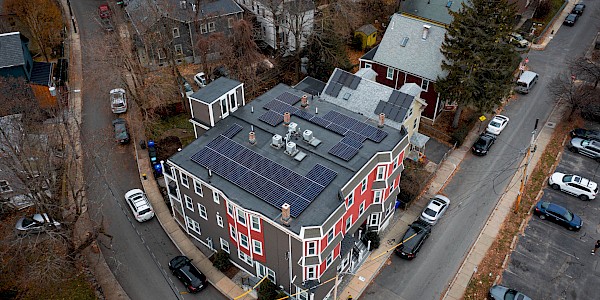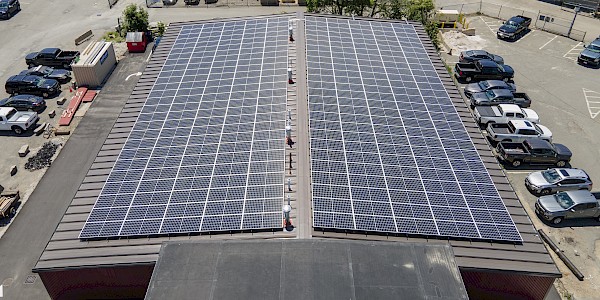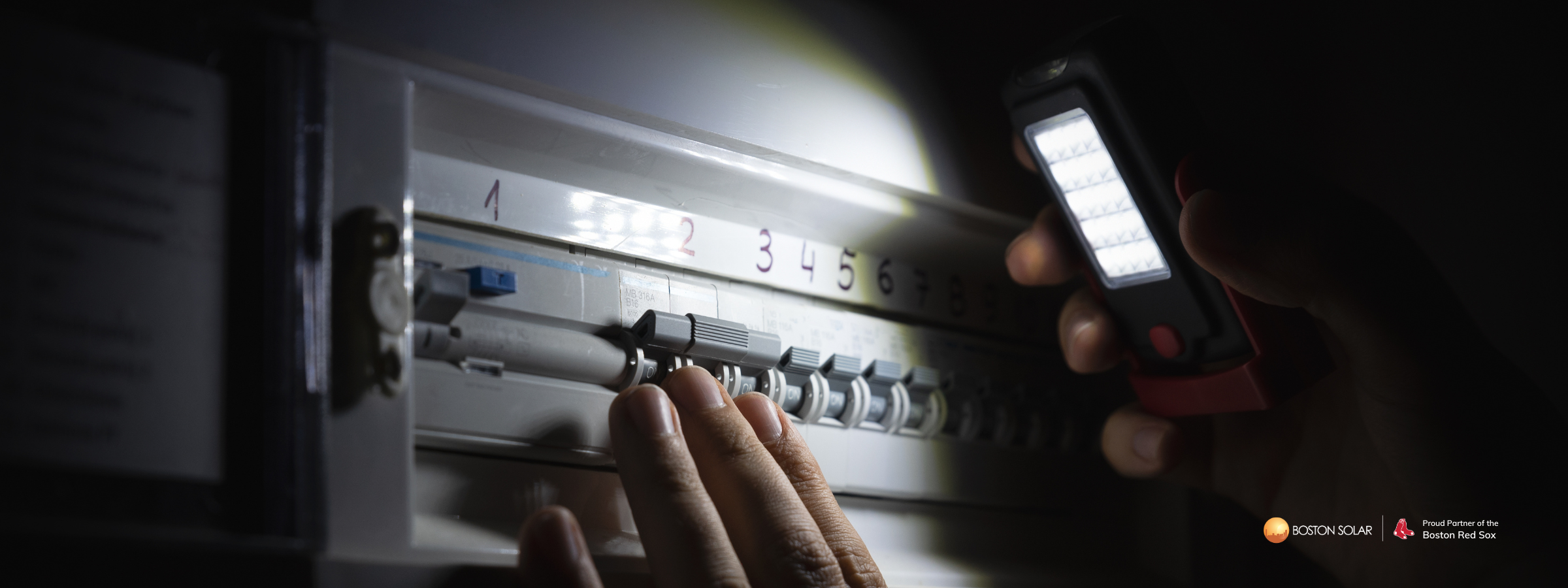Maintain Power During an Outage with Solar Battery Storage
Feb. 20, 2024
Reliable backup power is a necessity for homeowners in New England, especially as extreme weather becomes increasingly common. One bad storm could leave your family without power for days during the winter, putting them at risk.
There are a few ways to backup your home during a power outage, and solar battery storage is one of the best. With the right solar panel and battery storage system, you can keep your lights on during a power outage and take full advantage of the many other financial and environmental benefits of solar panels.
How Solar Panels Work in a Power Outage
Residential solar panels are grid-tied, which means they’re directly connected to the main electric grid. This allows you to use the grid as a power source when your solar panels are not producing electricity, like at night. But it also means that when the grid goes down, your solar panels go down with it. This shutoff happens automatically and is intended to prevent home solar panels from sending power into the grid during an outage and putting utility workers at risk.
Solar Batteries Keep Your Solar Panels on During a Power Outage
If you want to keep your solar panels on during a power outage, you need a solar battery. When you have a battery, the excess power your solar panels generate has somewhere to go besides the electric grid, which allows them to operate without a grid connection. During a power outage, the battery will automatically detect the outage and temporarily disconnect from the electric grid. This is called islanding.
In island mode, your solar panels will continue to generate electricity and charge your batteries whenever the sun is shining. At night, you can use the stored energy in your batteries to keep essentials like your refrigerator running until the sun comes up and your solar panels take over again.
Sizing Your Solar Battery
What you can back up with a solar battery—and for how long—depends on a few factors.
- Battery type and size: Solar battery sizes vary. Batteries with a higher storage capacity can store more electricity than batteries with a lower storage capacity.
- Number of batteries: The more batteries you have, the more backup power you’ll have access to.
- Inverter: Your solar inverter plays a key role in backup power. Some appliances, like an air conditioner, need a lot of power to start up, which requires a powerful inverter.
Whole Home vs Partial Home Backup
When you install solar power with battery backup, you can choose to back up your entire home or select loads (outlets and appliances).
Whole-Home Battery Backup
A whole-home solar battery system is designed to power your entire home. To achieve whole-home backup, you will need multiple solar batteries and a powerful inverter.
Partial-Home Battery Backup
Most homeowners choose to install partial-home battery backup, which is designed to back up your essential loads. What’s considered essential is different for everyone, and you’ll be able to choose which loads you want your battery to back up based on your own needs and preferences. Most homeowners choose to backup their refrigerator, lights, WiFi router, and a few outlets to charge phones and tablets.
Get the Best Solar Battery Backup for Your Home
Don’t wait until the next power outage to start thinking about backup power! Prepare now with a solar plus battery system for your home. Boston Solar is the leading solar installer in New England and we can help you find the best fit for your needs. We install premium solar battery storage systems, including FranklinWH solar batteries, and can help you save 30% on your solar battery installation with the federal solar tax credit.
Get reliable home backup power. Call 617-858-1645 or contact us for a free estimate.



